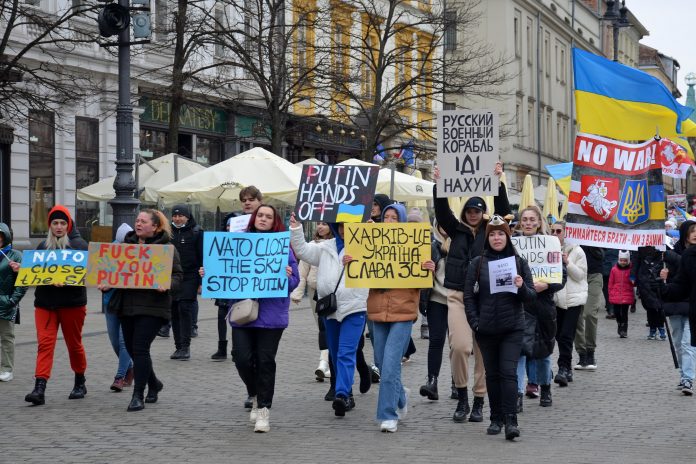On Thursday, MEPs, experts and stakeholders debated the threats faced by women from Ukraine escaping violence and warfare, including forced prostitution and sexual assault.
According to reports from the UNHCR and the European Commission, more than 3.5 million refugees have so far fled Ukraine, mainly women and children.
The Women’s Rights Committee exchanged views on the situation of refugees from Ukraine with the Commissioner for Home Affairs, Ylva Johansson, on 29 March 2022. The hearing served as a necessary follow-up to this discussion.
During the hearing jointly organised by the Committees on Women’s Rights and Civil Liberties, MEPs exchanged views with: Lesia Radelicki, Member of the Cabinet of Commissioner for Equality, Helena Dalli; Diane Schmitt, Anti trafficking coordinator, European Commission; Anna Dąbrowska, President at Homo Faber; Agnieszka Kosowicz, President, Polish Migration Forum; Julia Zelvenska, European Council on Refugees and Exiles; and Yevheniia Batina, Refugee in Poland, Executive Assistant to the CEO of AtlexSoft, Kharkiv.
The debate revolved around the challenges that women refugees from Ukraine are facing, and how the EU’s help can be further enhanced. Specific points raised included humanitarian assistance to the UN and the Red Cross to support vulnerable persons, the historic activation of the Temporary Protection Directive, the crucial role of civil society and the challenges NGOs are facing, the need for a coordinated response at member state and EU level, and the Commission’s 10-point plan to assist member states receiving refugees.
In addition to the immediate needs and threats that women from Ukraine are facing, many speakers highlighted the importance of access to education, healthcare, accommodation and jobs, highlighting that the EU’s response must be gender-sensitive. Several speakers also sounded the alarm over well-rooted exploitation networks in the region, and referred to the need to deliver clear information to asylum seekers through technology-driven solutions, sort out issues related to electronic documents issued in Ukraine, and train member states’ officers, to tackle human trafficking and sexual violence more effectively.
The issue of access to abortion for victims of rape was raised, with some speakers stressing that in Poland, for example, the situation is extremely difficult given the near total de facto ban on abortion. Some MEPs called for the solicitation of sexual services to be criminalised in all member states, claiming that impunity enables traffickers. Many spoke about how Russia is using sexual violence as a war weapon and all agreed that pregnancy care, support, and access to healthcare are all important factors in helping female refugees.
You can watch the hearing on demand on Parliament’s Multimedia Centre.

